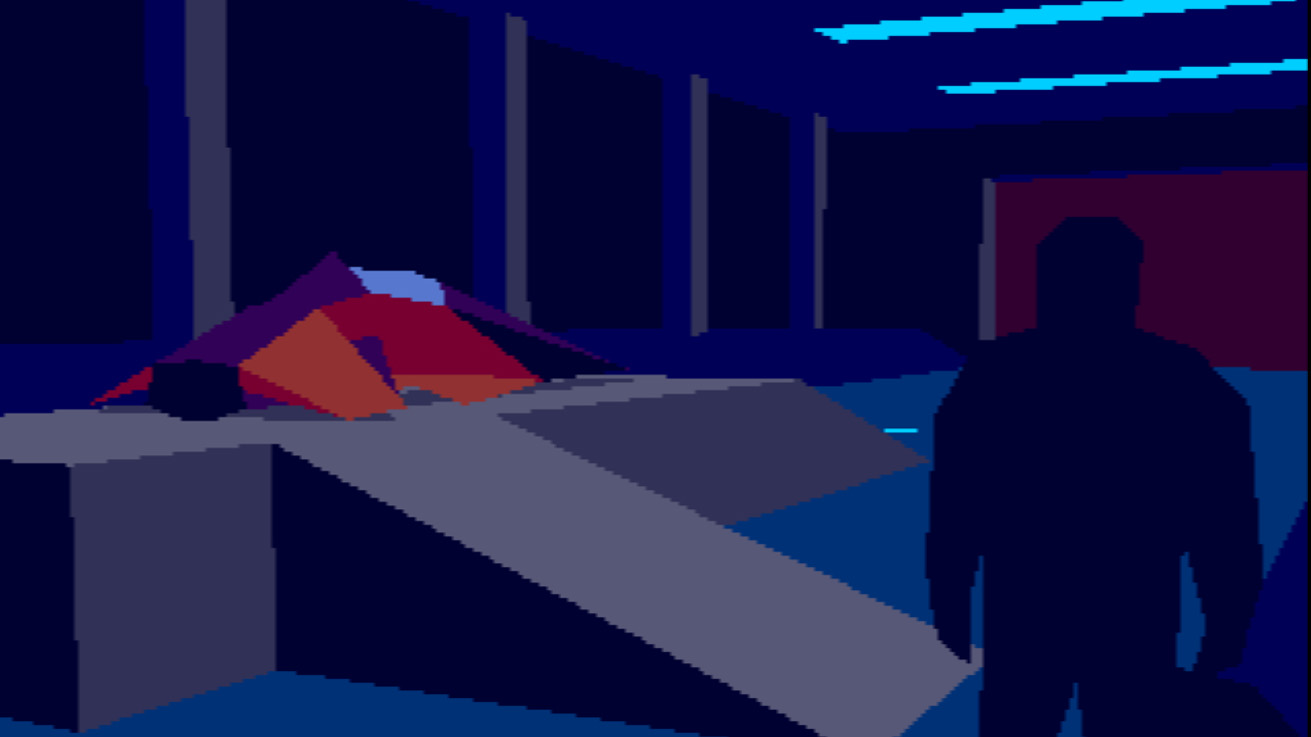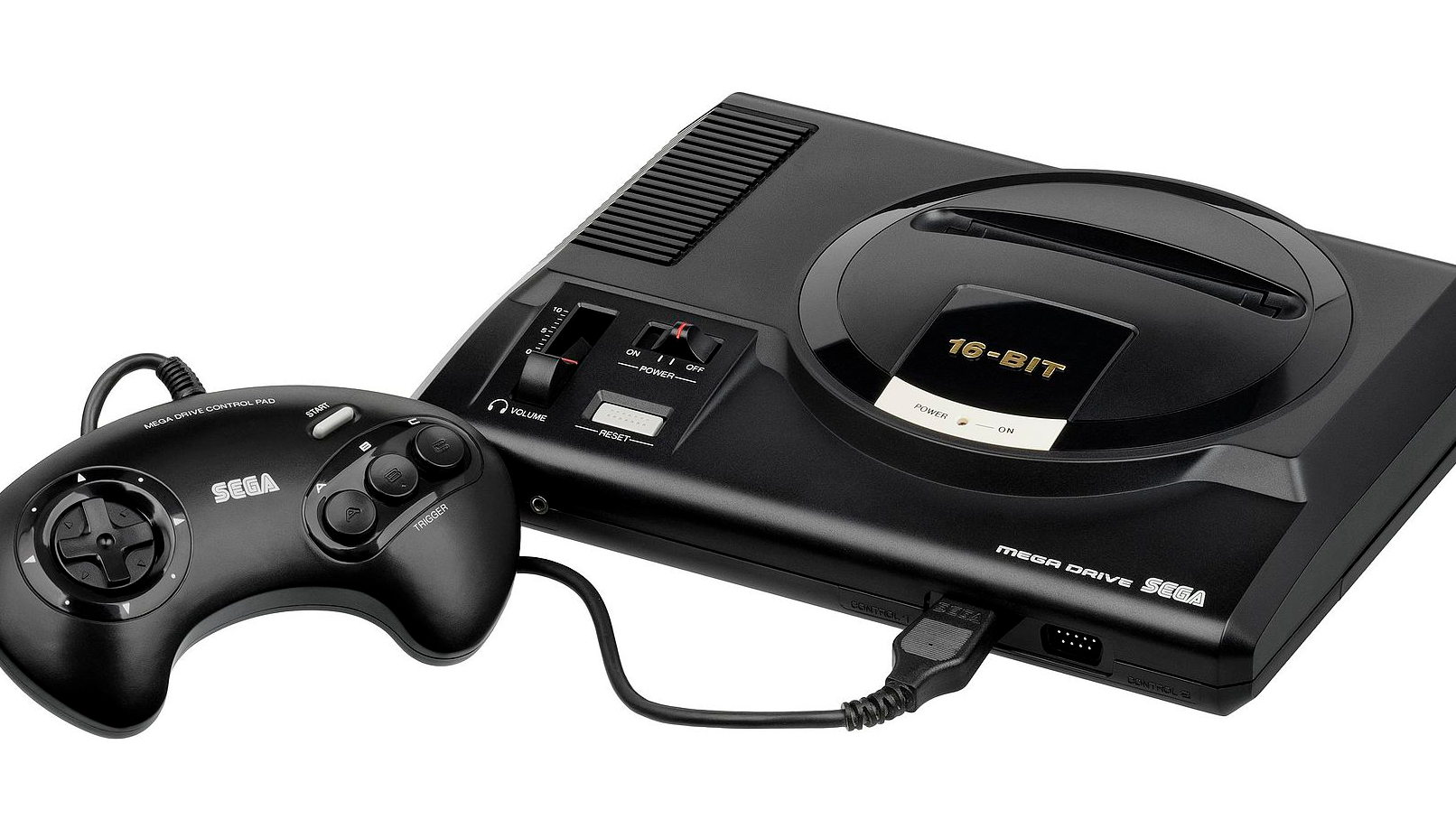
If you’re a hardcore retro collector who’s clung onto their Sega Mega Drive (known as the Sega Genesis in North America), or upgraded to HD with Analogue’s premium Mega Sg, did you know there’s more you can be doing than just playing Sonic 3 and Knuckles? It may not look it, but your console can also function as a music player - and we don’t just mean selecting a game’s sound test menu.
‘Technoptimistic’ is an album by Remute, a techno music producer based in Hamburg, released on cartridge. That’s right, not CD or vinyl, but on a genuinely playable Mega Drive cartridge. It’s not the most likely medium you’d expect to put a music album on but as he tells TechRadar: “this is the album I’ve wanted to make since the beginning of my career.”
Videogames have a rich musical tradition, from its underground demoscene roots in the 1980s to its breakthrough into the pop charts with tracks like Doctor Spin’s Tetris in the 1990s, to the present day, where game soundtracks are increasingly being made available on Spotify. While primarily this relationship has seen musicians sampling game sounds in their work, Remute aims to take this further by using retro consoles to actually create these sounds.
Indeed, Remute’s career had begun in the early 00s with an EP titled ‘Hypnoconsole’, heavily influenced by videogames, but he laments that at this time he was only able to sample existing game sounds and effects, as with all the above. But with his new album, he has been able to create his own original sounds that specifically utilize the Mega Drive's Yamaha YM2612 synthesizer chip.
Tracker field music

Remute composed ‘Technoptimistic’ using the widely available music tracker software Deflemask, which faithfully emulates the Mega Drive sound chip (and a whole host of other classic sound chips, from the Commodore 64 to the NES). However, it wasn’t enough to just emulate the sound of the Mega Drive, he also wanted this music playable on a chip.
We might be used to seeing classic and contemporary game soundtracks getting a vinyl release but a cartridge album isn’t just a novelty recording. In fact, it’s not a recording at all.
“‘Technoptimistic’ is just playing code that gets to music when you switch on the console - it’s all generated in real time,” Remute explains. “I thought I had to put it out on an actual cartridge because it wouldn’t feel natural on vinyl or digital, it would just be some other recorded album.”
Get daily insight, inspiration and deals in your inbox
Sign up for breaking news, reviews, opinion, top tech deals, and more.
Yet ‘Technoptimistic’ doesn’t have claim to being the first Mega Drive cartridge album. Ahead of the curve in 2010 was Australia-based underground electronic music artist Nathan Stanley, better known as freezedream, who released a short album ‘Today’ for the Mega Drive. More recently, he also composed the music for Mega Drive platformer Tanglewood, released in 2018.

Growing up experimenting with tracker software on the Amiga, Stanley admits he doesn’t have a nostalgia for the Mega Drive like Remute or other musicians notably influenced by its sound. The chilled ambience of the tracks in ‘Today’ are in fact unlike what you might expect to have heard on the hardware. “I generally like more mellow electronic music,” Stanley tells us. “I’d probably say that instead of being influenced by the traditional sound of the Mega Drive or emulating videogame music, I was kind of thinking how could I do something different for this console.”
At the time, Deflemask also didn’t exist so ‘Today’ was actually made using a tracker called TFM Music Maker, which included an FM expansion module that just happened to be compatible with Mega Drive’s FM chip.
Cart life

In either musician’s case, getting the music onto a proper cartridge was no mean feat. While there’s still plenty of pressing plants for vinyl, there’s no industrial method available to create music on game cartridges, so everything is handmade, from designing your own PCB (printed circuit board) to making your own cartridge cases.
For the latter, Stanley did some old-fashioned recycling. “I just bought a bunch of old sports games in bulk and salvaged the shells,” he says. “It was a fair bit of work - it’s why I didn’t produce too many copies of the album.”
The limited run naturally means that ‘Today’ is now only available on Bandcamp as a digital stream or download. As for anyone who does buy ‘Technoptimistic’, a free digital code is also included with the cartridge, should you not have a 30-year old console on hand. Nonetheless, Remute still insists that cartridge is the optimal way of experiencing his album.
“I had some fans who bought my cartridge who said they didn’t have a Mega Drive to play it, so they had to track it down,” he says. “This was really fun for them going through eBay or flea markets. Making people do something in order to listen to the music feels very adventurous and exciting, and entertainment is made for excitement and adventures.”
Having also put out music on floppy disk in the past, Remute knows a thing or two about embracing physical technology to its limits. Given how distinct the sound chips of the early computers and consoles were, it wouldn’t be a stretch to consider them as musical instruments in their own right.
Give physical life back to music

Even as digital has become the default way of consuming music, there’s nonetheless been a resurgence in vinyl - even the cassette is apparently making a comeback. Granted, game cartridges were never intended as a format for listening to albums, but following the unveiling of Google Stadia and the technological march towards the cloud, even novelties like this highlight the continuing importance of physical media.
“I think the comeback of physical media shows the desire of people to collect, to have an emotional bond with something, because you can’t have an emotional bond with Spotify,” Remute says. “It’s getting too convenient, too impersonal, music just becomes something unimportant. Having physical media puts the music back to life”
Unsurprisingly, Remute has also bought himself a Mega Sg, which the cartridge also runs on, though he has also made use of it as a means of performing his chip music live. Otherwise, the recommendation is to play the cartridge with a Mega Drive model 1, known for having a superior sound to the later model, as well as a headphone jack.
Cartridge albums might be a little too niche to become the next vinyl among music collectors but who knows, perhaps the next major retro indie game will release its soundtrack on a cartridge - after all, the 16-bit sections of time-travelling ninja platformer The Messenger also had its score composed on Deflemask. With the celebration of the Mega Drive’s 30th anniversary just past and Sega’s in-house Mega Drive Mini due in September, it’s certainly the time for it.
- Read more: How to play the best retro games
Alan Wen is a freelance journalist writing about video games in the form of features, interview, previews, reviews and op-eds. His work has appeared in print including Edge, Official Playstation Magazine, GamesMaster, Games TM, Wireframe, Stuff, and online including Kotaku UK, TechRadar, FANDOM, Rock Paper Shotgun, Digital Spy, The Guardian, and The Telegraph.
